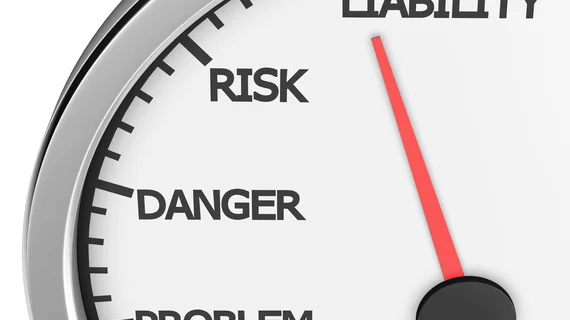New scoring system spots patients at risk of contrast-associated kidney injury
A recently developed risk score can predict which patients with coronary artery disease are at risk of suffering contrast-associated kidney injury.
People with coronary artery plaque buildup often undergo percutaneous coronary intervention (PCI) to restore blood flow to blocked areas. Angiography is the go-to for assessing these clogs but requires potentially toxic iodinated contrasts, which can have detrimental effects for some.
And while acute kidney injuries from such imaging agents have declined over recent years, CA-AKI is still a known complication of PCI and may lead to longer hospital stays, higher medical costs and death.
Roxana Mehran, MD, who developed the scoring system with Mount Sinai colleagues, presented the technique Monday during the American Heart Association’s annual meeting.
“As the number of high-risk patients undergoing PCI increases every year, it is really crucial to risk-stratify these patients to optimize outcomes and minimize cardiorenal complications,” Mehran, director of Interventional Cardiovascular Research and Clinical Trials at Mount Sinai, said in a statement. “Simple measures can be taken around the time of procedure when a patient is identified to be at high risk of CA-AKI, and we hope this new score is widely adopted to enhance the care of patients and improve outcomes.”
The Mehran-2 CS-AKI Risk Score builds upon a previous iteration released in 2004. The update was based on 30,000 PCI patients treated between 2012-2020 and incorporates practice changes, advanced imaging techniques and new stent technology.
Using the simple system, Mehran et al. assigned individual scores ranging from 0 (low risk) to 13 or above (extreme risk). The determination relied on baseline factors such as diabetes, anemia, congestive heart failure, advanced kidney disease and other ailments.
Doctors armed with patient-specific scores can enhance patient management decisions, the team noted. For example, they may increase hydration before PCI, administer statins or reduce the amount of imaging contrast used during procedures.
“We plan to design clinical trials and incorporate this score to evaluate both external validation in predicting acute kidney injury but also clinical outcomes,” Mehran added.
Read the full study published Monday, Nov. 15 in The Lancet.

